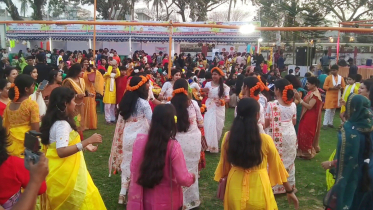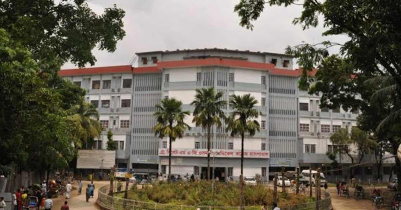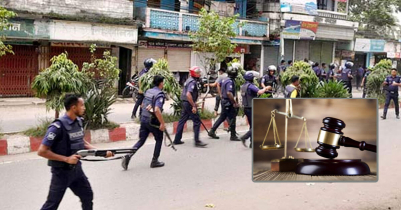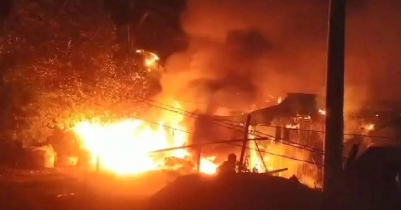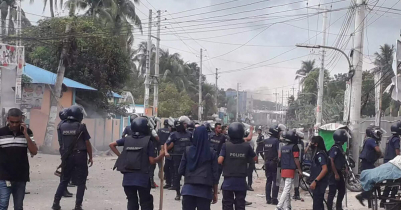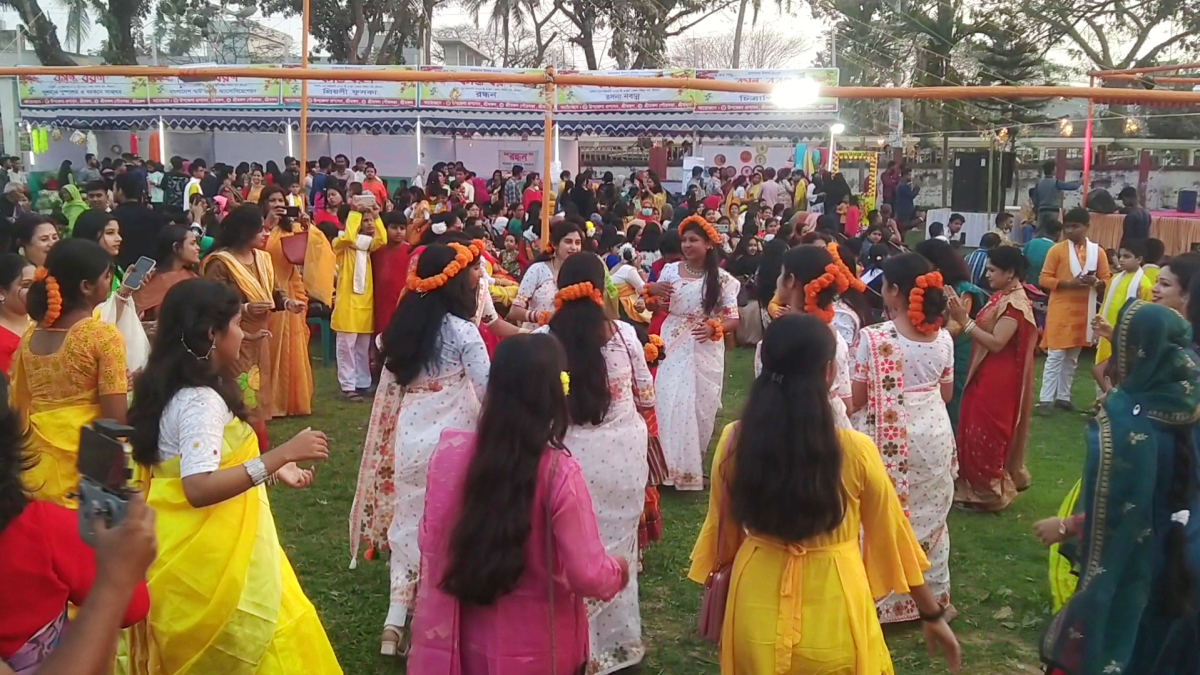Hussain Ahmad, returning from Hakaluki Haor
Hakaluki Haore cries for water, disrupts Boro farming
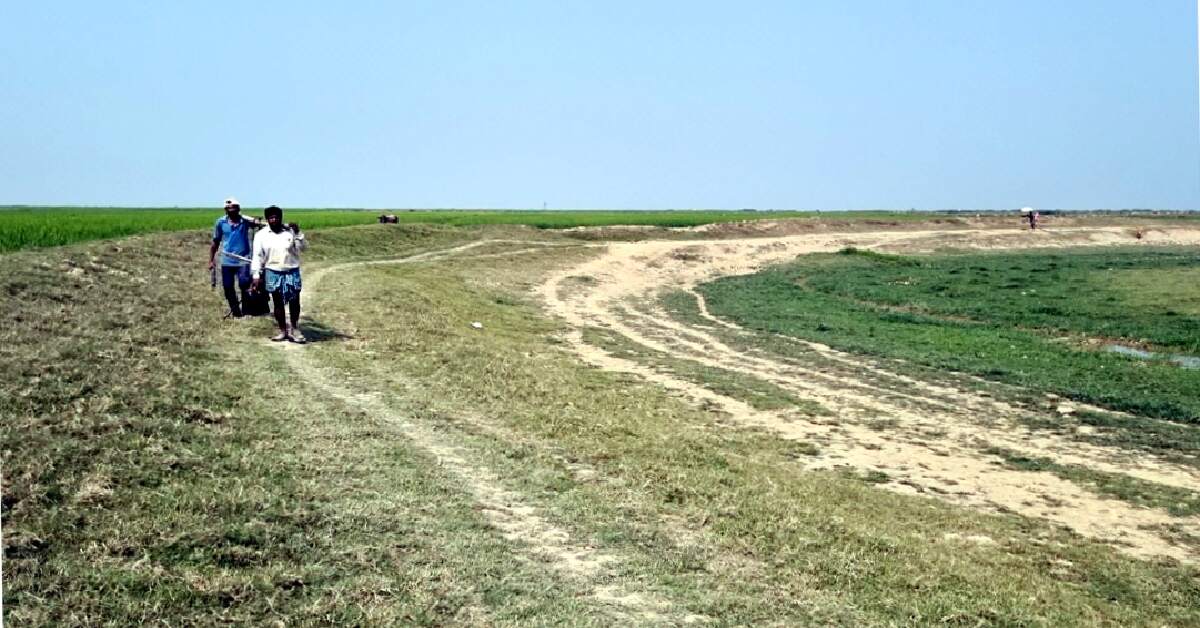
The An-Fanai River of Hakaluki Haor of Kahe Chauchi. Photo : Eye News
South Asia's largest Hakaluki Haor is crying for water. Farmers are unable to irrigate Boro lands despite spending three to four times more money. As a result, crop production has decreased in the largest area. The cost of farmers has increased. Farmers are losing interest in farming due to lack of water as required. Residents on the banks of Haor complain that there is no effective initiative by the concerned authorities for the development of Haor and farmers. As a result, the production of hawre boro is gradually decreasing.
Location of Hakaluki Haor with Kulaura, Juri and Baralekha of Moulvibazar and Fenchuganj and Golapganj upazilas of Sylhet. The area of Haor is 181.15 hectares. It is the largest in South Asia and has about 238 banks and 10 rivers.
According to the sources of the District Agriculture Extension Directorate, the target of boro cultivation in the district this year is 58 thousand 450 hectares. Cultivation has been 60 thousand 57 hectares. Out of this, 27 thousand hectares have been cultivated in Howre. Hundreds of thousands of farmers and fishermen derive their livelihood directly and indirectly from Hakaluki.
Boro paddy is the sole source of livelihood for the marginal farmers and barga cultivators of Haor region. With the income of that crop, their family expenses for the whole year and all expenses including education of sons and daughters are covered. Farmers also repay the loan from the money from the sale of paddy.
When the surface is cleared, it can be seen that it is time for the boro crop to emerge. But there is no water in the river, canal or bill anywhere. Farmers are crying for water. They are waiting for rain. As there is no facility to irrigate Boro land, the farmers are watering the land from a distance of 3/4 thousand feet with ribbon pipes. The cost per hour is Rs.400/500.
Many farmers are not getting water despite spending money. Due to lack of water, Boro land is bursting. Boro crops are dying due to lack of water. The lessees are killing the fish by drying up the bill. Due to which water was not available in the bill. Due to the lack of planned irrigation system, the cost of farmers is increasing on the one hand and the crop production is decreasing on the other hand.
According to the investigation, Fanai River meets An Fanai from Vatera Union in the west and Banna River from the east. If a switch gate is installed in the area running a little below the confluence of those 3 rivers, there will be enough water in the 3 rivers and the farmers will be able to irrigate the boro land as needed.
Hakaluki Haor spoke to farmers Faiz Ali, Jitu Mia, Fakul Mia, Madhu Mia and Haji Liaquat Ali. They said that they are not able to water the land even after spending money in the months of Magh, Falgun and Chaitra. There is no water anywhere. Water has to be paid at a cost of 3/4 times more than the normal cost. Again, water was not available everywhere. They said that production is not going well due to lack of water. Income decreased, expenses increased. They claim that it is imperative to set up a switch gate at Howar in the larger interest.
Read more
- Sylhet city polls: the winning councilors of 42 wards
- Anwaruzzaman returned to Sylhet
- The new DC of Moulvibazar Dr. Urmi Binte Salam
- `Special train` will run on Sylhet-Chandpur route from today
- The new DC of Sylhet Sheikh Russell Hasan
- Sylhet City Corporation Election will be held 21 June
- Dr. Urmi Binte Salam joins as new DC of Moulvibazar
- Sylhet city polls: 42 ward`s voters list
- International cricket returned to Sylhet after three years
- Those who got place in Sylhet district BNP committee



